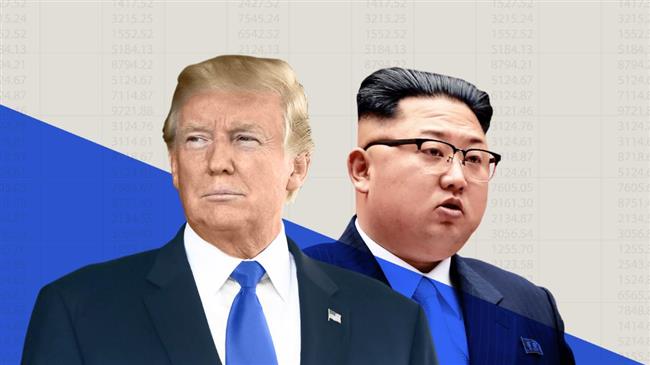North Korean leader 'may have met his match' in Trump: Clapper
James Clapper, America’s former top spy, has said North Korean leader Kim Jong-un "may have met his match" in US President Donald Trump's unconventional style of diplomacy.
Clapper, the former director of national intelligence, said in an interview with CNN that the June 12 summit between Trump and Kim must take place. Trump abruptly canceled the meeting last week but which he has since said was "moving along very nicely.”
"This is typical ... Two steps forward, one step back. That's what [the North Koreans] always do," Clapper said on Sunday. "And in some ways Kim Jong-un may have met his match here with our very unconventional president."
"Having gone this far, there's value in meeting and greeting, gripping and grinning and just establishing a rapport," Clapper said. "Yes, I think it would be important to have the summit."
He said that both the United States and North Korea should establish an initial diplomatic presence below the level of embassy for better communication.
"What I've been long an advocate for is let's first establish the conduit, the apparatus for communicating," he said. "And by that, I mean establishing interest sections in both Washington and Pyongyang. What this means is a diplomatic presence below the level of a full embassy, much as we did in Havana, Cuba, for decades."
President Trump’s policy on North Korea, like so much of his presidency, has been shrouded in secrecy and confusion.
One day he cancels the summit with Kim and the next day he says productive talks are underway to prepare for the meeting.
Now US officials are reportedly asking Pyongyang to ship out all its nuclear Warheads out of the Korean Peninsula before the June 12 summit.
American officials have also discussed possible plans to scrap weapons-grade plutonium, highly enriched uranium and other weapons-related material that North Korea might have.
All of these are part of Pyongyang’s commitment to denuclearize. The North dismantled its sole known nuclear test site on Thursday in an array of explosions.
Clapper also said denuclearization of the Korean Peninsula could include a "two-way street" where Washington restricts some of its nuclear activities, specifically halting bomber deployments.
"That is apply [it] to the United States as well, where the North Koreans could expect us to restrict our nuclear umbrella, meaning no more B-1s, B-2s or B-52s deploying on the peninsula or within operational proximity," he said.
China ‘firmly opposes’ US military aid to Taiwan
VIDEO | Press TV's News Headlines
President Yoon Suk Yeol to be removed from office
At least 19 Gazans killed by Israeli airstrikes since dawn: Medics
Leader: Iran neither has nor needs proxy forces
US fighter aircraft shot down ‘in friendly fire’ amid aggression on Yemen
Yemeni FM: Israel’s sponsors accountable for ongoing aggression on Sana’a
Eight Palestinians killed as Israel attacks Gaza school, hospitals











 This makes it easy to access the Press TV website
This makes it easy to access the Press TV website